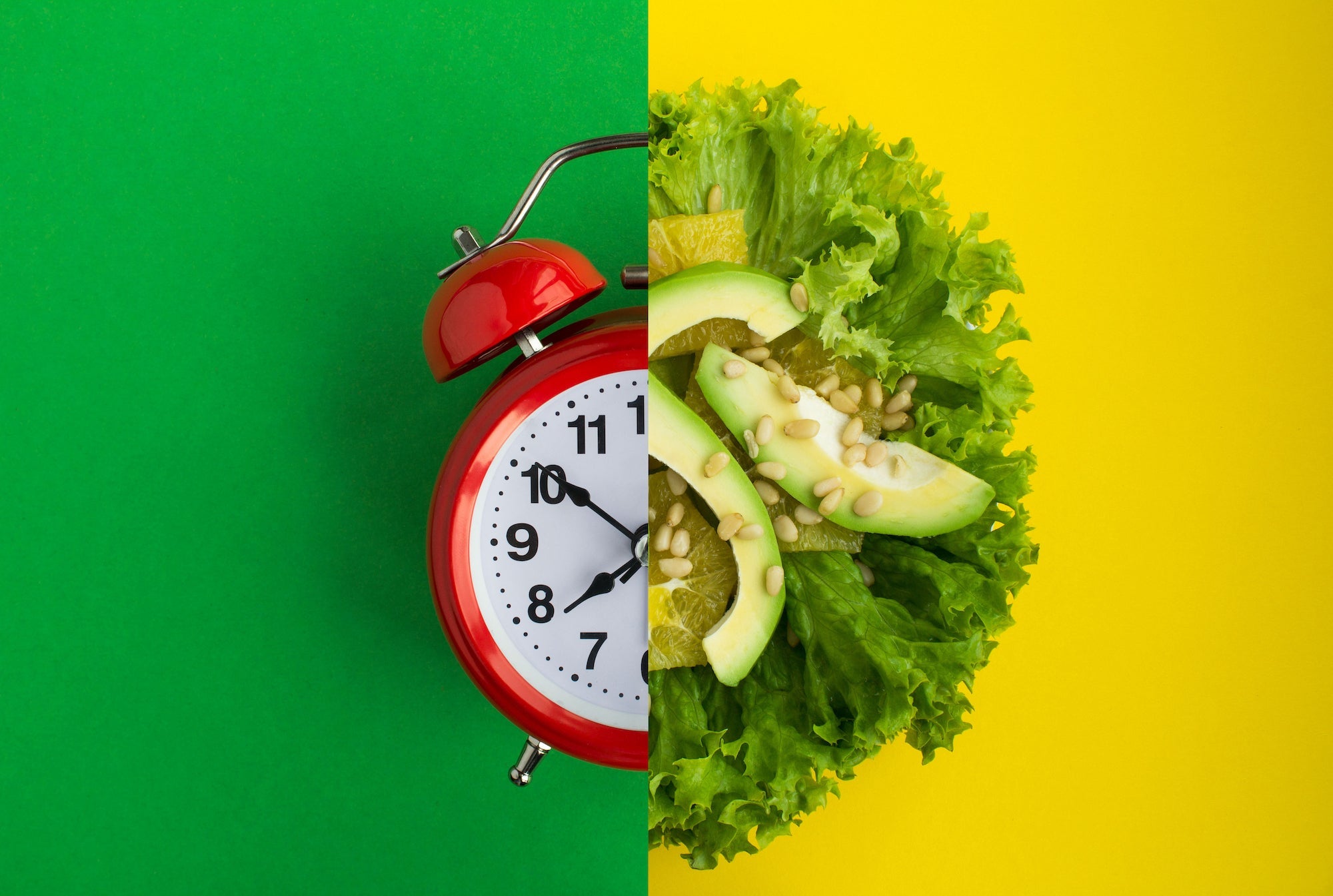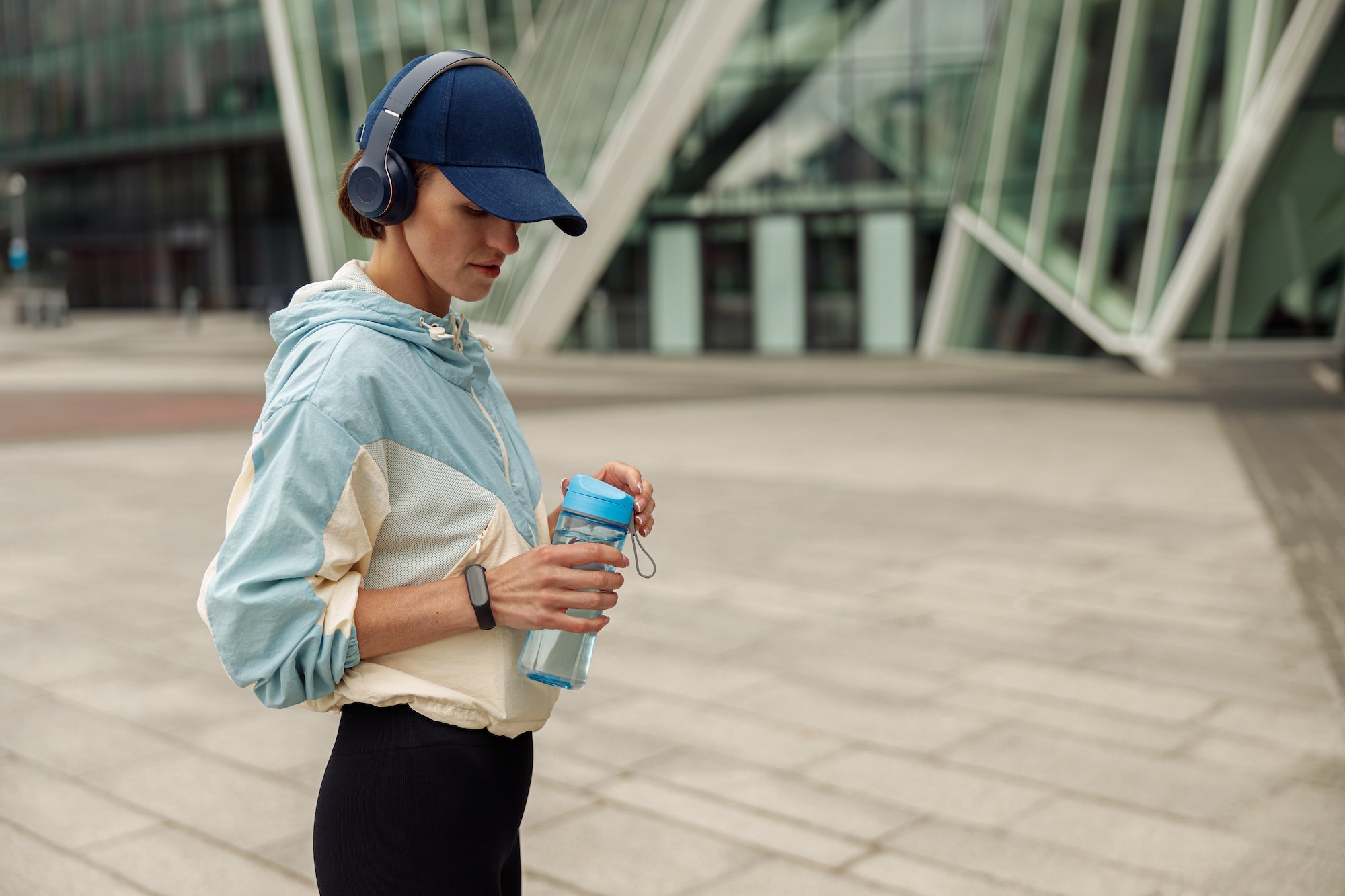Ever wonder where caffeine gets its cerebral charm?
Whether you’re a but-first-coffee person in the morning or an afternoon tea drinker, a caffeine jolt can dust the sleep crust off your brain, ease stress, and sustain your intellectual prowess.
But how does caffeine actually work? And what are the short and long-term effects of caffeine on your brain?
In this article, we’ll explore all the research behind the neuroscience of caffeine. We’ll fill our mental mugs with caffeine's brain-boosting powers, then share a jitter-free option that beats your standard cuppa Joe.
What is Caffeine?
Caffeine is a naturally-occurring stimulant and nootropic found in plants like coffee beans, tea leaves, cocoa beans, and kola nuts.[*] Technically, it’s the most widely used “drug” in the world across all age groups.[*][*]
Stats tell us that 98% of North Americans consume some form of caffeine daily, and 54% of Americans consume three cups of coffee on a daily basis.[*]
Most of us turn to caffeine to temporarily boost alertness and reduce drowsiness. But science shows caffeine may also:[*][*][*]
- Improve our physical endurance
- Increase endorphins which may alter pain perception better than a placebo
- Provide tension headache relief as effective as acetaminophen
- Increase our basal metabolic rate (BMR) to help us burn more calories at rest
- Promote fat-burning
So How Does Caffeine Work?
Researchers say our gastrointestinal (GI) tract absorbs 99% of caffeine within 45 minutes of consumption.[*] Then it disperses throughout our body and even crosses the blood-brain barrier to provide the cognitive perks we’ll get into next.
Scientists learned that caffeine’s effects can last up to 12 hours (depending on your body type and typical caffeine intake). Peak caffeine concentration in our blood usually happens within the first 15 to 20 minutes after consumption, which is when you’ll feel its strongest effects.
Your body doesn’t store excess caffeine; it gets processed in the liver and leaves your system via urine. That’s why you may urinate more frequently when chugging caffeinated beverages.
Is Caffeine Addictive?
Many caffeine connoisseurs believe they can’t get by without their fix. However, research on caffeine addiction is inconsistent. In one study of nearly 7,000 daily caffeine users, only 11% reported symptoms that meet the official substance withdrawal criteria.[*]
Still, going cold turkey can cause caffeine withdrawal symptoms such as fatigue, headaches, depression, irritability, and anxiety.[*] These usually begin 12 to 24 hours after your last caffeine date and may last up to one week.[*]
How Much Caffeine Is Safe To Consume?
Experts agree that it’s safe for the general adult population to consume up to 400 mg of caffeine per day.[*] You can check this chart from the Center for Science in the Public Interest to see how much caffeine your favorite drinks contain.
So can you overdose on caffeine?
Caffeine intoxication is real and can happen whenever you consume large amounts of caffeine at once or during the day. With busier workloads and the growing popularity of energy drinks, more people are experiencing the adverse effects of caffeine, such as:[*]
- Nervousness, anxiety, and panic attacks
- Irritability, restlessness, and excitability
- Jitters and muscle twitching
- Headaches
- Heart palpitations
- Dehydration
- Dizziness
- Insomnia
- Hallucinations
Caffeine also slightly raises your blood pressure and may decrease blood flow if you’re hypertensive, so it’s wise to speak with your doctor about safe limits if you have any heart conditions. This side effect is actually a response to:
The Science Behind the Top Caffeine Brain Effects
So how does caffeine affect the brain?
Caffeine is considered a central nervous system stimulant, which means it boosts activity in your brain and spinal cord.[*] The CNS helps you process information and respond to stimuli.
Caffeine works by blocking adenosine receptors in your brain. Adenosine is a neurotransmitter that keeps your “flight or fight” response in check. Rather than ramping us up to fight or flee, it slows down neural activity, promotes relaxation, and makes us feel tired.
Gatekeeping adenosine allows caffeine to let those fight-or-flight hormones and neurotransmitters loose.[*][*][*] This results in:
1. Higher Mental Energy, Alertness, Attention, and Focus
A psychostimulant is a drug that enhances brain activity to increase alertness, attention, and overall cognitive function. Caffeine falls under this umbrella.
Caffeine blocks those adenosine receptors and turns on the tap to those “fight or flight” hormones and neurotransmitters. These bump your body and brain into arousal and focus.
Caffeine drinkers often feel ready to tackle anything thanks to the release of:[*][*][*][*]
- Norepinephrine, adrenaline, and cortisol. These play a vital role in our stress response, increasing our attention, energy levels, and heart rate.
- Dopamine. Often associated with pleasure and reward, dopamine’s also involved in various cognitive functions and raises motivation.
- Acetylcholine. This neurotransmitter is crucial for memory, concentration, and mental tasks.
That’s why studies show caffeine intake provides clear benefits for our:[*][*][*][*][*][*][*][*]
- Energy levels
- Mental agility
- Reaction times/speed
- Verbal and working memory
- Attention, focus, and concentration
- Problem-solving
- Accuracy and confidence
- High-level cognitive performance and vigilance tasks
- Vigor and alertness (in sleep-deprived subjects)
Researchers say the more caffeine you consume, the stronger these effects.[*] Daily caffeine consumers also tend to perform better on mental functioning and attention tests than low consumers.[*]
2. Better Moods
Along with those fight-or-flight neurotransmitters, caffeine also encourages the release of mood-boosting neurotransmitters like dopamine and serotonin, the “feel-good” chemical.
According to psychiatry studies, caffeine can temporarily help us:[*][*][*]
- Encourage a sense of well-being during stressful situations
- Decrease fatigue, depression, and hostility
- “Significantly” improve moods
- Foster more positivity and greater mental health
PSA: Though caffeine use delivers these short-term perks, going overboard can cause anxiety, panic attacks, and mood swings. Knowing your limits is key here.
3. Improve Brain Health and Neuroplasticity
Neuroplasticity refers to our brain’s ability to reorganize and form new neural connections. This dynamic process reflects our capacity to learn new skills, retain memories, and even recover from brain injuries.
Regarding caffeine’s effect on the brain, scientists say drinking coffee specifically may strengthen the connections in our brain’s neural network, make them more efficient, and improve our cognition.[*]
Research on caffeine consumption also reveals that it may:[*][*][*][*][*]
- Improve brain health
- Increase brain entropy, a sign of increased processing power
- Promote neuroplasticity
- Increase the firing rates of neurons
- Prevent age-related cognitive decline
- Protect us from neurodegenerative diseases like Alzheimer’s and Parkinson’s
So What’s the Best Way To Get a Jitter-Free Dose of Caffeine?
Even though caffeine acts as a mental stimulant and may be a contributor to positive moods and healthier brains, many people avoid it because they worry about getting the jitters.
But there’s a significant difference between how each source of caffeine makes you feel.
Prefer tea over coffee consumption? That calm-yet-focused feeling you dig may be due to the presence of L-theanine, an amino acid that’s also a nootropic and adaptogen. Combined with caffeine, L-theanine improves mental performance and relaxes your mind without causing drowsiness.[*]
So can coffee drinkers snag all the benefits of caffeine without the jittery effects of coffee too?
Meet IQJOE: An Instant Coffee Game-Changer
Coffee drinkers can finally score their daily dose of caffeine without the anxiety, restlessness, fidgetiness, or tension that sometimes tags along a cuppa.
IQJOE is our version of instant coffee made better. Each convenient, on-the-go packet contains:
- Brazilian Coffee for a rich, aromatic treat for your tastebuds.
- 750 mg Magtein®️ (Magnesium L-Threonate) to elevate your mood and mental performance.
- 250 mg 8X-Concentrated Lion's Mane Extract, an adaptogen that lowers stress and enhances productivity.
- 200 mg Organic Caffeine from Green Coffee for long-lasting, crash-proof, jitter-free energy.
Did we mention IQJOE packs are keto, vegan, non-GMO, and gluten-, dairy-, and soy-free? That’s right; it’s all the good stuff you need to support your mental clarity without any junk that may sabotage your health goals.
Just add one IQJOE packet to 8-12 oz. of hot water, stir until dissolved, and prepare to conquer your day. It’s something to wake up for, a more affordable afternoon pick-me-up, and a productivity hack to blast through the worst brain fog.
☕ Try our IQJOE Variety Pack to taste test all four flavors: Original Black, Vanilla Spice, Toasted Hazelnut, and Caffè Mocha.
Time To Savor that Cup of Brilliance
Caffeine has so much to offer in the way of brain optimization. From enhancing our intellectual capacity and positively influencing our mood to improving our brain health, it’s clear why most of us can’t go a day without our trusty caffeine fix.
So sip your way to peak cognitive performance with the IQBAR Ultimate Sampler! It’s the smartest way to try every IQBAR, IQMIX, and IQJOE flavor till you find your favorites.
Written by Lauren Ciccarelli, a writer and research geek passionate about low-carb nutrition, mental health, and meditation. Her 2,500+ articles empower doers with science-backed tips for leveled-up living.


